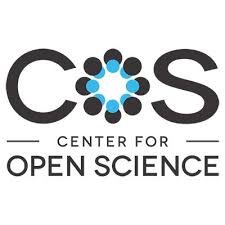Do you know what the Center for Open Science can offer you?

The Center for Open Science (COS) is a non-profit technology and culture change organization with a mission to increase openness, integrity, and reproducibility of scientific research. COS pursues this mission by building communities around open science practices, supporting metascience research, and developing and maintaining open source software tools.
Infrastructure to support researchers throughout the research lifecycle
The Center for Open Science (COS) develops and maintains the open-source Open Science Framework, or OSF, an infrastructure that supports culture change by enabling rigor and transparency across the research lifecycle.
The OSF project management platform helps research teams work on projects privately or make the entire project publicly accessible for broad dissemination. OSF integrates with many tools researchers already use, allowing them to streamline and manage their projects and data from one place while eliminating data silos and removing barriers to collaboration.
Some of the most critical issues that reduce scientific rigor can be addressed through an act called preregistration. Preregistering an analysis plan allows researchers to shine a light on what was planned beforehand versus what was discovered after the fact. This reduces hindsight bias and overconfidence that an uncertain discovery was predicted beforehand.
Pre-registration also eliminates publication bias by making all studies discoverable, even if they’re never published. Sharing all outcomes, not just novel results, increases transparency and trust in science.
OSF supports pre-registration for many research methodologies using customized registration formats. With the OSF Registries service, groups can launch their own registries to help enhance rigor in their communities. OSF Registries has features to help researchers, such as the option to embargo registrations so that ideas aren’t disclosed too soon.
OSF Institutions makes it even easier for organizations and universities’ researchers to sign-in and use OSF, manage collaborative data, and increase visibility of institution-affiliated research. Universities can even connect their local repositories to OSF to integrate with their researchers’ workflows.
OSF and the OSF Preprints service make it easy to make all findings openly available, including their data and supporting material, even if they’re never included in a published paper. OSF Preprints gives researchers control to communicate their findings as openly and quickly as possible so that others can benefit from the research—whether it shows a promising new direction or a likely dead-end.
Making all of this research available is most useful if it’s also discoverable. Researchers need tools for searching and filtering to help them discover the content that’s most relevant to them, while accelerating their ability to build on the work of others. Groups can launch OSF Collections to improve the discoverability of projects within their areas of interest. With customizable filtering and taxonomies, OSF Collections helps foster communities of practice—giving researchers a place to discover work and share their own.
By increasing rigor and transparency in planning, conducting, reporting, and discovery, the Center for Open Science is working to open up the whole research lifecycle.
Sign up for OSF: cos.io
Email for more information: [email protected]


